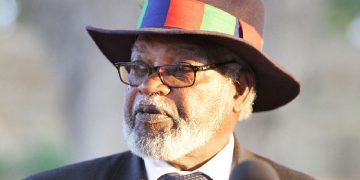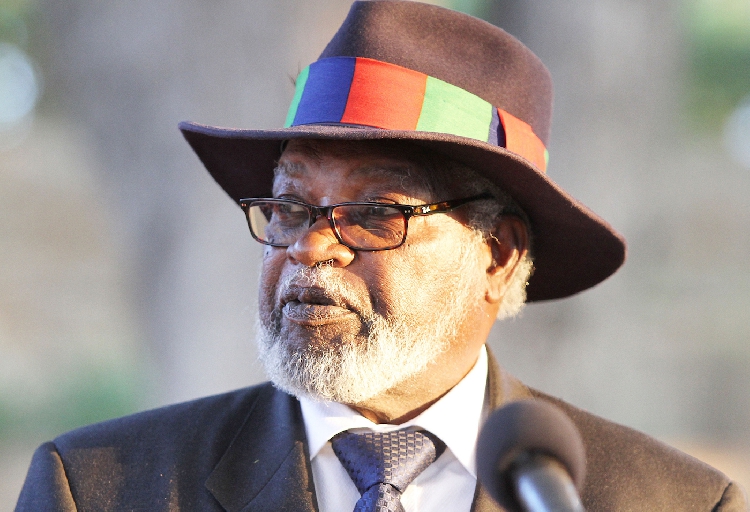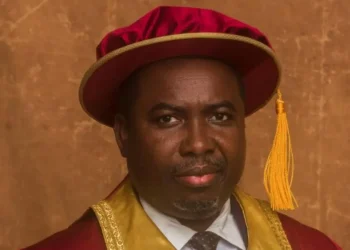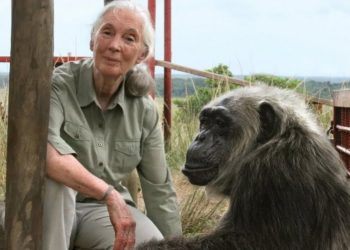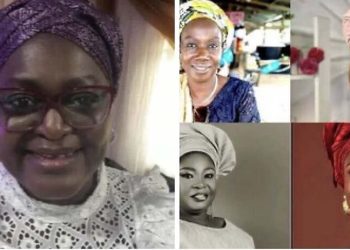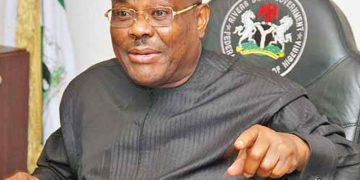Samuel Shafiishuna Daniel Nujoma, widely known as Sam Nujoma, was born on May 12, 1929, in Etunda village, Ongandjera, near Okahao in Ovamboland, South West Africa (now the Omusati Region of Namibia).
He passed away on February 8, 2025, at the age of 95 in Windhoek, Namibia.
Nujoma was a towering figure in Namibian history—a revolutionary, anti-apartheid activist, and politician who became the first President of an independent Namibia, serving from 1990 to 2005.
Often hailed as the “Founding Father of the Namibian Nation” and the “Leader of the Namibian Revolution,” Sam Shafiishuna Nujoma’s life was defined by his relentless struggle against colonial oppression and his dedication to building a unified, independent Namibia.
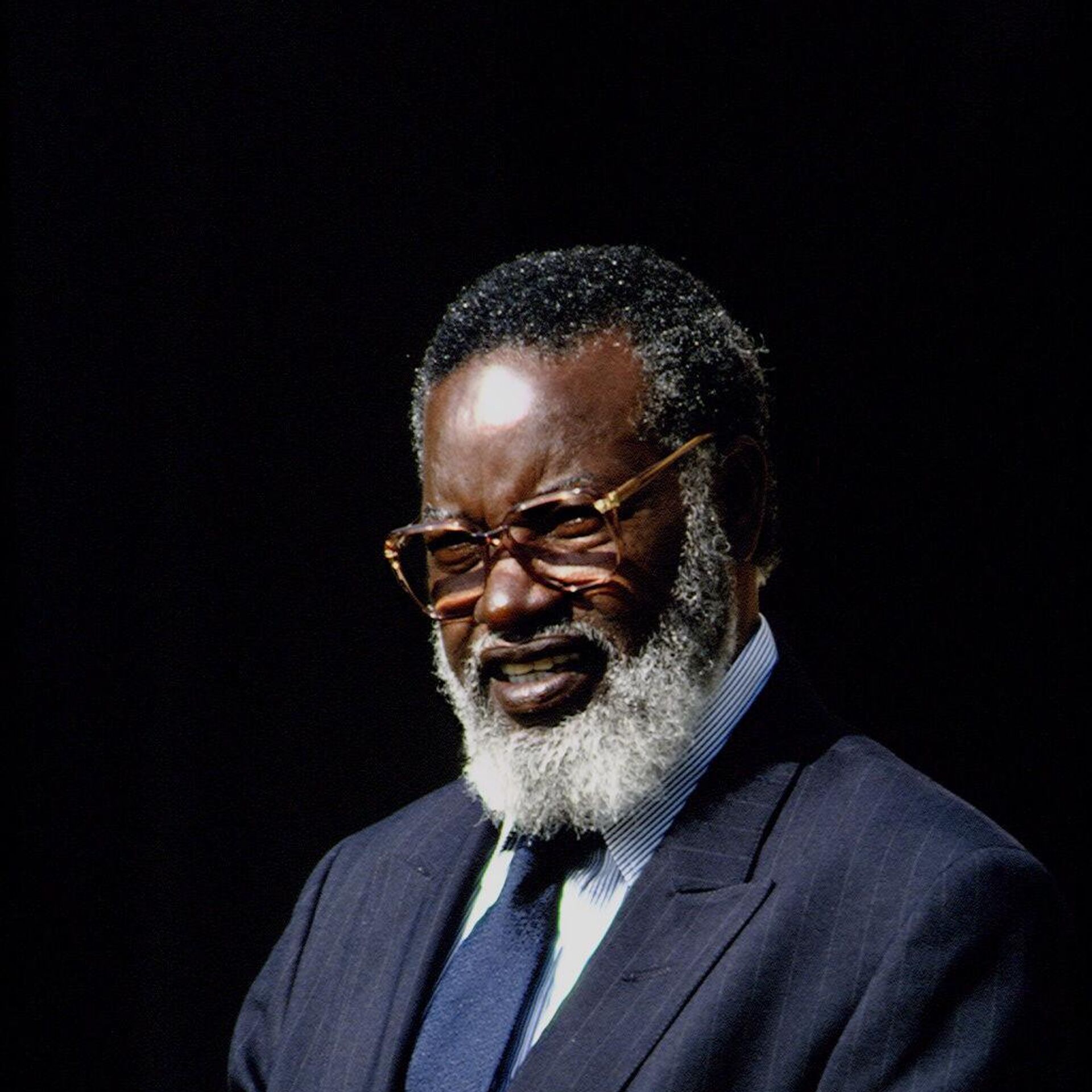
Bio-Data
| Name | Sam Nujoma (Samuel Shafiishuna Daniel Nujoma) |
| Date of Birth | May 12, 1929 |
| Place of Birth | Etunda village, Ongandjera, Ovamboland, South West Africa (now Omusati Region, Namibia) |
| Date Died | February 8, 2025 |
| Age at Death | 95 years |
| Country | Namibia |
| Political Affiliation | South West Africa People’s Organization (SWAPO) |
| Spouse | Kovambo Theopoldine Katjimune Mushimba (married May 6, 1956) |
| Source | Bsgistnews.com |
Early Life and Education of Samuel Shafiishuna Daniel Nujoma
Sam Nujoma was born to Helvi Mpingana Kondombolo (1898–2008), a Uukwambi princess by descent, and Daniel Uutoni Nujoma (1893–1968), a peasant farmer.
He was the eldest of their eleven children.
Growing up in a rural Ovambo community under South African colonial rule (following the end of German control after World War I), Nujoma’s early years were spent tending to his family’s cattle and goats, a common responsibility for boys in his region.
His mother’s royal lineage later bolstered his charismatic influence during his political career.
Educational opportunities for Black Namibians were severely limited under colonial rule.
Nujoma began attending a Finnish missionary school in Okahao at age ten and completed Standard Six—the highest level of education available to Black students at the time.
In 1946, at age 17, he moved to Walvis Bay to live with his aunt, Gebhart Nandjule, where he took his first job at a general store, earning a modest salary of 10 shillings per month.
This exposure to urban life and interactions with soldiers from Argentina, Norway, and other parts of Europe during World War II broadened his worldview and sparked his interest in politics.
In 1949, Nujoma relocated to Windhoek, the capital, to live with his uncle, Hiskia Kondombolo.
There, he worked as a sweeper and tea maker for South African Railways while attending night classes at St. Barnabas Anglican Mission School.
He later pursued a Junior Certificate through correspondence with Trans-Africa Correspondence College in South Africa, demonstrating his determination to educate himself despite systemic barriers.
Early Political Awakening of Sam Shafiishuna Nujoma
Nujoma’s political consciousness emerged in the early 1950s while working for South African Railways.
Witnessing the harsh treatment of Black workers under the apartheid-inspired contract labor system and pass laws ignited his activism.
In 1957, at age 29, he resigned from his railway job to dedicate himself fully to political organizing.
His early efforts focused on trade unions, where he connected with like-minded activists advocating for workers’ rights.
In 1958, Nujoma became a key organizer of the Old Location resistance in Windhoek, opposing the forced relocation of Black residents to the segregated township of Katutura under apartheid policies.
This protest culminated in a massacre on December 10, 1959, when South African police killed 12 unarmed demonstrators and wounded many others.
The event radicalized Nujoma and solidified his commitment to ending colonial rule.
That year, he co-founded and became the first president of the Ovamboland People’s Organization (OPO), a nationalist group aimed at abolishing the contract labor system and securing independence for South West Africa under a United Nations Trusteeship.
Exile and Leadership of SWAPO
In 1960, the OPO was reorganized into the South West Africa People’s Organization (SWAPO), with Sam Nujoma elected as its president in absentia.
Facing arrest and deportation to Ovamboland after the Old Location protests, he fled into exile on March 1, 1960, traveling through British Bechuanaland (now Botswana), Southern Rhodesia (Zimbabwe), Northern Rhodesia (Zambia), Tanganyika (Tanzania), Kenya, and Sudan with assistance from Daniel Munamava.
In April 1960, he attended the All African People’s Conference in Ghana, organized by President Kwame Nkrumah, to protest French nuclear tests in the Sahara.
He then traveled to Liberia and, in June 1960, arrived in the United States, where he petitioned the UN Fourth Committee of the General Assembly to end South African colonial administration of South West Africa.
While in exile, Nujoma was welcomed in Tanzania by Julius Nyerere and established SWAPO as a formidable liberation movement.
Initially, SWAPO pursued peaceful means, petitioning the United Nations to enforce South Africa’s withdrawal from South West Africa after the UN revoked its mandate in 1966.
When these efforts failed, Nujoma founded the People’s Liberation Army of Namibia (PLAN) in 1962 and launched a guerrilla war against the apartheid regime on August 26, 1966, at Omugulugwombashe.
This marked the beginning of the Namibian War of Independence, which lasted from 1966 to 1989.
Under Nujoma’s leadership, SWAPO gained international recognition, and in 1973, the UN General Assembly declared it the “sole legitimate representative” of the Namibian people.
Path to Independence
Sam Nujoma led SWAPO through decades of armed struggle and diplomatic negotiations.
In 1977, at the World Conference Against Apartheid in Lisbon, he emphasized the need to dismantle colonial and apartheid institutions in Namibia to create a society free of racial and religious discrimination.
He also cautioned against neocolonialism that might preserve oppressive structures under a superficial veneer of change.
In the late 1970s, Samuel Nujoma headed SWAPO’s negotiations between the Western Contact Group (West Germany, Britain, France, the US, and Canada), South Africa, the Frontline States, and Nigeria.
These talks culminated in United Nations Security Council Resolution 435 in September 1978, outlining a plan for free and fair elections in Namibia.
However, implementation stalled for another decade.
The breakthrough came in 1988 with the Geneva Protocol and Brazzaville Accord, which facilitated South Africa’s withdrawal from Namibia and set the stage for independence.
On September 14, 1989, after nearly 30 years in exile, Nujoma returned to Namibia to lead SWAPO in the UN-supervised elections held in November 1989.
SWAPO secured a majority with 57% of the vote, largely due to its strong support among the Ovambo, who comprised over half of Namibia’s population.
On March 21, 1990, Namibia achieved independence, and Nujoma was sworn in as its first president by UN Secretary-General Javier Pérez de Cuéllar, in the presence of South African President Frederik de Klerk and a recently freed Nelson Mandela.
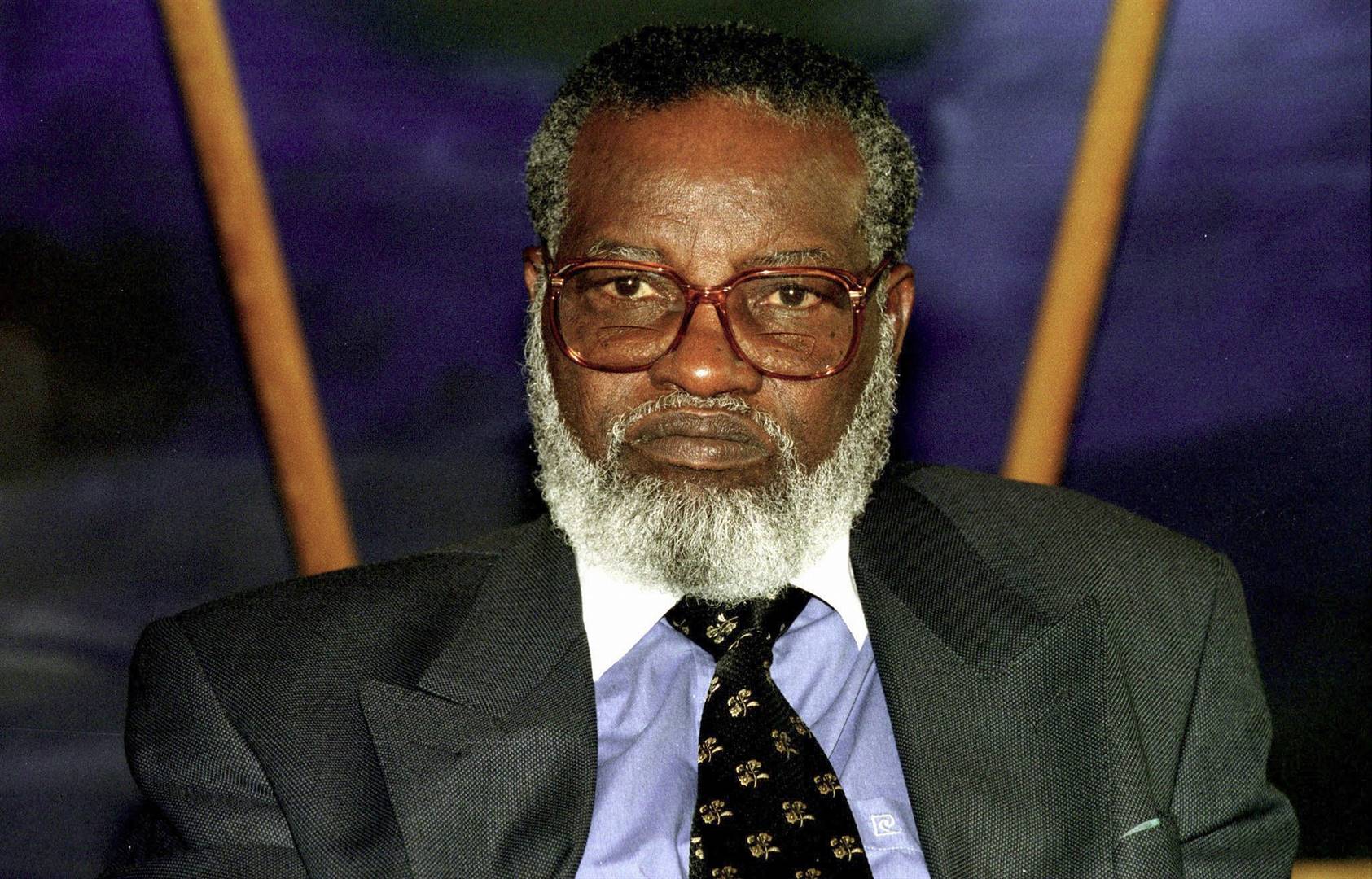
Sam Nujoma’s Presidency (1990–2005)
As president, Sam Nujoma served three terms from March 21, 1990, to March 21, 2005.
His administration focused on nation-building, reconciliation, and economic development in a country scarred by colonial rule and war.
Despite accusations of Marxist leanings, Nujoma adopted a pragmatic approach inspired by Scandinavian democratic socialism, emphasizing stability and a mixed economy.
He sought to attract foreign investment while reducing Namibia’s economic dependence on South Africa.
Nujoma’s government prioritized infrastructure, education, and healthcare, and launched a national reconciliation program under the motto “One Namibia, One Nation.”
He frequently reiterated his vision of “a united people, striving to achieve a common good for all members of society.”
His leadership brought democratic institutions and relative stability, earning Namibia praise as a model of post-colonial governance.
However, his presidency faced criticism over slow land reform, media suppression, and the brutal response to the 1999 Caprivi rebellion.
In 1994, Nujoma was re-elected with a strong mandate.
In 1998, the SWAPO-controlled parliament amended the constitution to allow him a third term, a move that drew domestic and international backlash but reflected his enduring popularity.
He won re-election in 1999 with 76.8% of the vote.
Controversies later emerged, including his support for Robert Mugabe’s land seizures in Zimbabwe (though he maintained a “willing buyer, willing seller” policy at home) and inflammatory remarks against homosexuality, urging police to arrest and deport gay and lesbian Namibians in 2001.
Nujoma stepped down as president in 2005, facilitating a peaceful transfer of power to Hifikepunye Pohamba, a SWAPO stalwart.
He resigned as SWAPO party president in 2007 after 47 years at its helm, though he remained politically active, campaigning for the party in subsequent years.
Nujoma’s Personal Life
On May 6, 1956, Nujoma married Kovambo Theopoldine Katjimune Mushimba (born March 10, 1933), who became Namibia’s inaugural First Lady from 1990 to 2005 and was nicknamed the “Mother of the Nation.”
They had four children: Utoni Daniel (born 1952), John Ndeshipanda (1955–1993), Sakaria “Zacky” (born 1957), and Nelago (born 1959, died at 18 months while Nujoma was in exile).
A fifth child, Usuta (born 1964), is also noted in some accounts.
Kovambo faced significant hardship during Nujoma’s exile, including house arrest in 1960 alongside her brother Aaron Mushimba, a SWAPO activist.
Later Years and Controversies
After retiring, Nujoma pursued further education, earning a master’s degree in geology from the University of Namibia in 2009.
He remained a vocal figure, often stirring controversy with provocative statements.
In June 2009, he urged SWAPO youth to “take up arms” and “drive the colonists out of the country,” and attacked the German-speaking Evangelical Lutheran Church in Namibia (DELK), accusing it of collaboration with apartheid forces.
He threatened violence against “white friends from Germany” who might intervene.
In September 2009, defending Mugabe, he called for physical attacks on British, American, and German individuals, remarks that alarmed critics but underscored his unyielding anti-colonial stance.
Nujoma’s health declined in his final years.
His last public appearance was at the funeral of President Hage Geingob in February 2024.
After a three-week hospitalization, he died on February 8, 2025, at 11:45 PM in Windhoek.
The Namibian government declared a period of national mourning, and his remains were transported across regions for public tributes.
A memorial service was held on February 28, 2025, and he was buried at Heroes’ Acre on March 1, 2025.
Legacy and Honors
Nujoma’s legacy is complex. He is revered as a liberation hero who ended apartheid rule in Namibia and fostered national unity, earning titles such as “Founding President of the Republic of Namibia” (conferred by parliament in 2005) and “Father of the Namibian Nation.”
Internationally, he received accolades like the Lenin Peace Prize, the Indira Gandhi Peace Prize, and the Ho Chi Minh Peace Prize.
Streets and landmarks across Namibia bear his name, including Sam Nujoma Drive in Windhoek.
However, his autocratic tendencies, intolerance of dissent, and polarizing rhetoric in later years cast shadows over his achievements.
Analysts like Ndumba Kamwanyah note that while Nujoma laid the foundation for Namibia’s independence and governance, his presidency was “not without flaws.”
He is often compared to contemporaries like Nelson Mandela, Kenneth Kaunda, and Robert Mugabe as one of the last African leaders to guide their nations out of colonial or minority rule.
Nujoma published his autobiography, Where Others Wavered, in 2001, offering insights into his life and vision.
Through the Sam Nujoma Foundation, established in 2005, he supported educational and charitable initiatives.
His death marked the end of an era, leaving Namibia to reflect on his monumental contributions and the challenges he left unresolved.
Conclusion
Sam Nujoma’s life was a testament to resilience, conviction, and the unrelenting pursuit of freedom.
From his early days as a cattle herder in colonial South West Africa to his ascent as the architect of Namibia’s independence, he embodied the aspirations of a nation yearning to break free from oppression.
As the founding president, he laid the groundwork for a stable, democratic Namibia, fostering unity in a land fractured by decades of apartheid rule.
Yet, his legacy is not without complexity—marked by both groundbreaking achievements and contentious decisions that sparked debate about his methods and ideals.
Nujoma’s death on February 8, 2025, closed a chapter in Namibia’s history, leaving behind a nation forever shaped by his vision, courage, and contradictions.
As a liberation icon and statesman, he remains a towering figure whose influence endures, inspiring reflection on the price of freedom and the challenges of building a just society.
Frequently Asked Questions
1. Who was Sam Nujoma?
Sam Nujoma was a Namibian revolutionary, anti-apartheid activist, and politician who served as the first President of Namibia from 1990 to 2005, known as the “Founding Father of the Namibian Nation.”
2. When and where was Sam Nujoma born?
He was born on May 12, 1929, in Etunda village, Ongandjera, Ovamboland, South West Africa (now Omusati Region, Namibia).
3. What was Sam Nujoma’s family background?
He was the eldest of 11 children born to Helvi Mpingana Kondombolo, a Uukwambi princess, and Daniel Uutoni Nujoma, a peasant farmer.
4. What education did Sam Nujoma receive?
He completed Standard Six at a Finnish missionary school, attended night classes at St. Barnabas Anglican Mission School, and later earned a Junior Certificate through correspondence, followed by a master’s degree in geology in 2009.
5. What inspired Sam Nujoma to become politically active?
His experiences with the harsh contract labor system and apartheid policies while working for South African Railways in the 1950s sparked his activism.
6. What political party did Sam Nujoma lead?
He co-founded and led the South West Africa People’s Organization (SWAPO) from its inception in 1960 until 2007.
7. Why did Sam Nujoma go into exile?
He fled South West Africa in March 1960 to avoid arrest after organizing protests against apartheid policies, including the Old Location resistance.
8. What role did Sam Nujoma play in Namibia’s independence?
As SWAPO president, he led the armed struggle through the People’s Liberation Army of Namibia (PLAN) and negotiated internationally for independence, achieved on March 21, 1990.
9. When did Sam Nujoma return to Namibia from exile?
He returned on September 14, 1989, to lead SWAPO in the UN-supervised elections.
10. What was the Namibian War of Independence?
It was a guerrilla war (1966–1989) led by Nujoma and SWAPO against South African colonial rule, starting with the battle at Omugulugwombashe on August 26, 1966.
11. When did Sam Nujoma become President of Namibia?
He was sworn in as Namibia’s first president on March 21, 1990, the day of independence.
12. How long did Sam Nujoma serve as president?
He served three terms, from March 21, 1990, to March 21, 2005, totaling 15 years.
13. Why was Sam Nujoma allowed a third term?
In 1998, the SWAPO-controlled parliament amended the constitution to permit him an additional term, citing his role as the founding president.
14. What were Sam Nujoma’s key achievements as president?
He established democratic institutions, promoted national reconciliation, and invested in infrastructure, education, and healthcare.
15. What controversies marked Sam Nujoma’s presidency?
His tenure faced criticism over slow land reform, media suppression, the 1999 Caprivi rebellion crackdown, and anti-gay rhetoric in 2001.
16. Who was Sam Nujoma’s wife?
He married Kovambo Theopoldine Katjimune Mushimba on May 6, 1956, who served as Namibia’s First Lady from 1990 to 2005.
17. How many children did Sam Nujoma have?
He had four children with Kovambo: Utoni Daniel, John Ndeshipanda, Sakaria “Zacky,” and Nelago (who died in infancy), with some accounts mentioning a fifth child, Usuta.
18. What happened to Sam Nujoma’s son John Ndeshipanda?
John died in 1993 at age 38, though specific details about his death are less documented.
19. Did Sam Nujoma have any notable hobbies or interests?
Later in life, he pursued geology, earning a master’s degree, reflecting his interest in education and science.
20. Where did Sam Nujoma live after retiring?
He remained in Namibia, primarily in Windhoek, staying active in SWAPO and public life until his health declined.
21. When did Sam Nujoma die?
He passed away on February 8, 2025, at 11:45 PM in Windhoek, Namibia.
22. How old was Sam Nujoma when he died?
He was 95 years old at the time of his death.
23. What was the cause of Sam Nujoma’s death?
Official reports cite a three-week hospitalization prior to his death, though specific causes have not been widely detailed.
24. Where was Sam Nujoma buried?
He was buried at Heroes’ Acre in Windhoek on March 1, 2025, following a state funeral.
25. How did Namibia mourn Sam Nujoma’s death?
The government declared a national mourning period, with his remains transported across regions for tributes and a memorial service held on February 28, 2025.
26. What is Sam Nujoma’s legacy in Namibia?
He is celebrated as a liberation hero who secured independence and fostered unity, though criticized for authoritarian tendencies and divisive remarks.
27. What awards did Sam Nujoma receive?
He was honored with the Lenin Peace Prize, Indira Gandhi Peace Prize, and Ho Chi Minh Peace Prize, among others.
28. What did Sam Nujoma write about his life?
He published his autobiography, Where Others Wavered, in 2001, detailing his journey and vision for Namibia.
29. How is Sam Nujoma remembered internationally?
He is recognized as a key figure in Africa’s anti-colonial struggles, often compared to Nelson Mandela and Kenneth Kaunda.
30. What controversies followed Sam Nujoma in retirement?
His provocative statements, such as calls to “take up arms” against colonists in 2009 and support for Robert Mugabe, stirred debate about his post-presidency influence.
